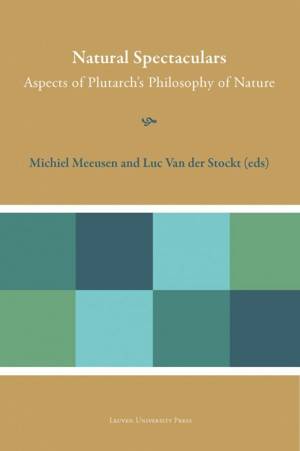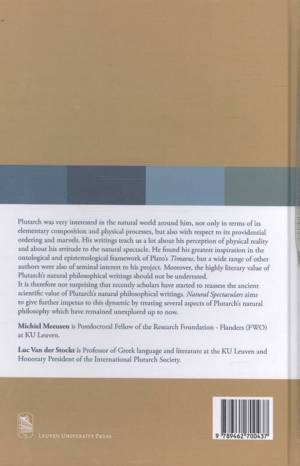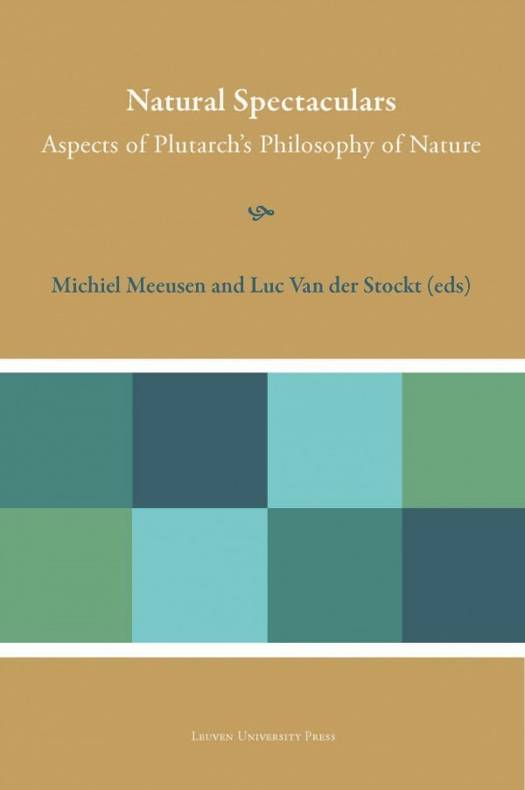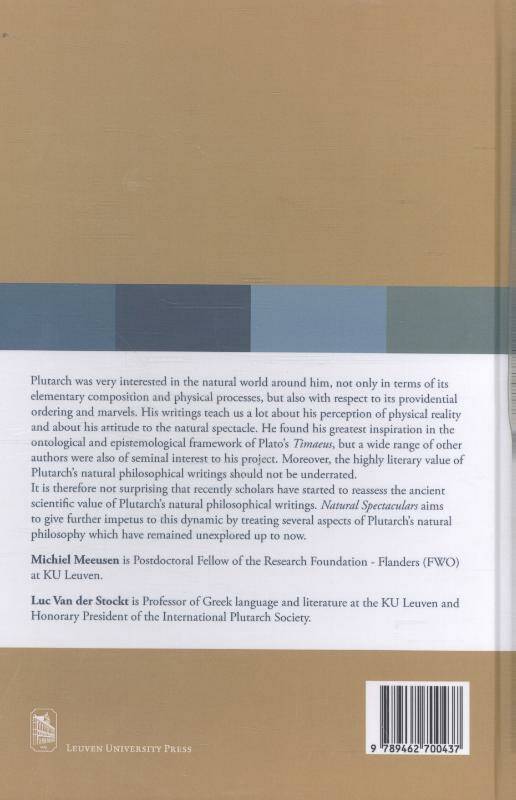
- Retrait gratuit dans votre magasin Club
- 7.000.000 titres dans notre catalogue
- Payer en toute sécurité
- Toujours un magasin près de chez vous
- Retrait gratuit dans votre magasin Club
- 7.000.0000 titres dans notre catalogue
- Payer en toute sécurité
- Toujours un magasin près de chez vous


Natural Spectaculars
Aspects of Plutarch's Philosophy of Nature
Description
The value of Plutarch's perception of physical reality and his attitude towards the natural spectacle. Plutarch was very interested in the natural world around him, not only in terms of its elementary composition and physical processes, but also with respect to its providential ordering and 'wonders'. His writings teach us a lot about his perception of physical reality and about his attitude to the natural spectacle. He found his greatest inspiration in the ontological and epistemological framework of Plato's Timaeus, but a wide range of other authors were also of seminal interest to his project. Clearly, the highly literary value of Plutarch's natural philosophical writings should not be underrated. It is therefore not surprising that recently scholars have started to reassess the ancient scientific value of Plutarch's natural philosophical writings. Natural Spectaculars aims to give further impetus to this dynamic by treating several aspects of Plutarch's natural philosophy which have remained unexplored up to now.
This publication is GPRC-labeled (Guaranteed Peer-Reviewed Content). Contributors: Jan Opsomer (KU Leuven), Suzan Sierksma-Agteres (Rijksuniversiteit Groningen), Angelo Casanova (Università degli Studi di Firenze), Paola Volpe Cacciatore (Università degli Studi di Salerno), Aldo Setaioli (Università degli Studi di Perugia), Fabio Tanga (Università degli Studi di Salerno), Michiel Meeusen (KU Leuven), Luisa Lesage Gárriga (Universidad de Málaga), Ana Ferreira (Universidade do Porto), Israel Muñoz Gallarte (Universidad de Córdoba), Lautaro Roig Lanzillotta (Rijksuniversiteit Groningen), Bram Demulder (KU Leuven), Aurelio Pérez Jiménez (Universidad de Málaga), Delfim Ferreira Leão (Universidade de Coimbra)Spécifications
Parties prenantes
- Editeur:
Contenu
- Nombre de pages :
- 264
- Langue:
- Anglais
- Collection :
Caractéristiques
- EAN:
- 9789462700437
- Date de parution :
- 15-01-16
- Format:
- Livre relié
- Format numérique:
- Genaaid
- Dimensions :
- 155 mm x 236 mm
- Poids :
- 521 g

Les avis
Nous publions uniquement les avis qui respectent les conditions requises. Consultez nos conditions pour les avis.






